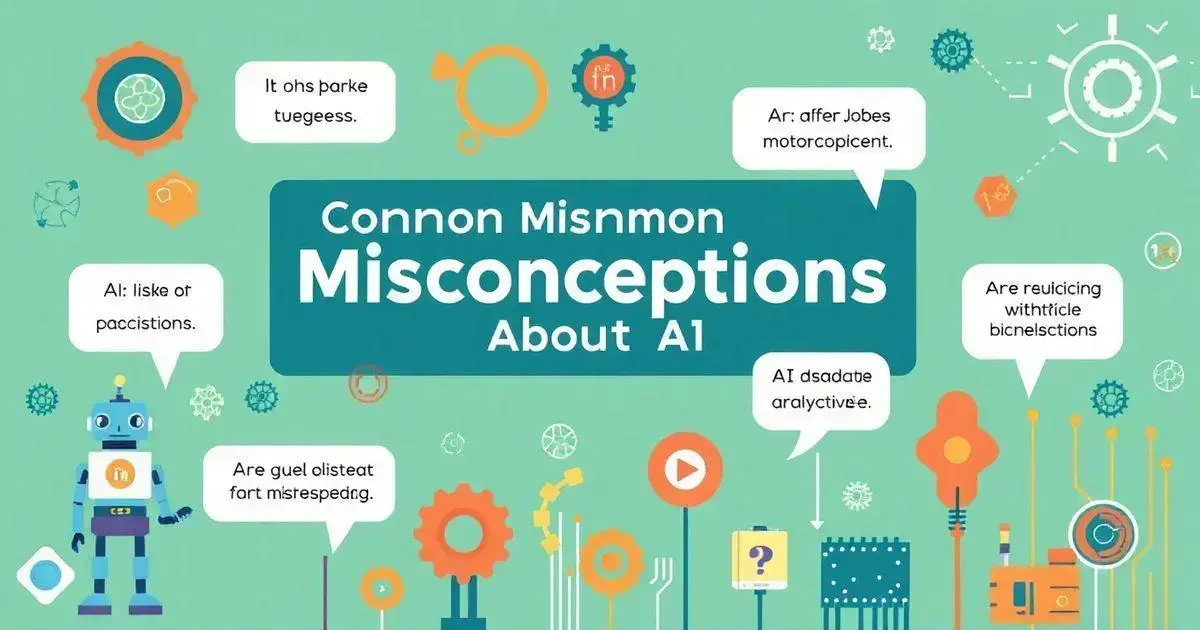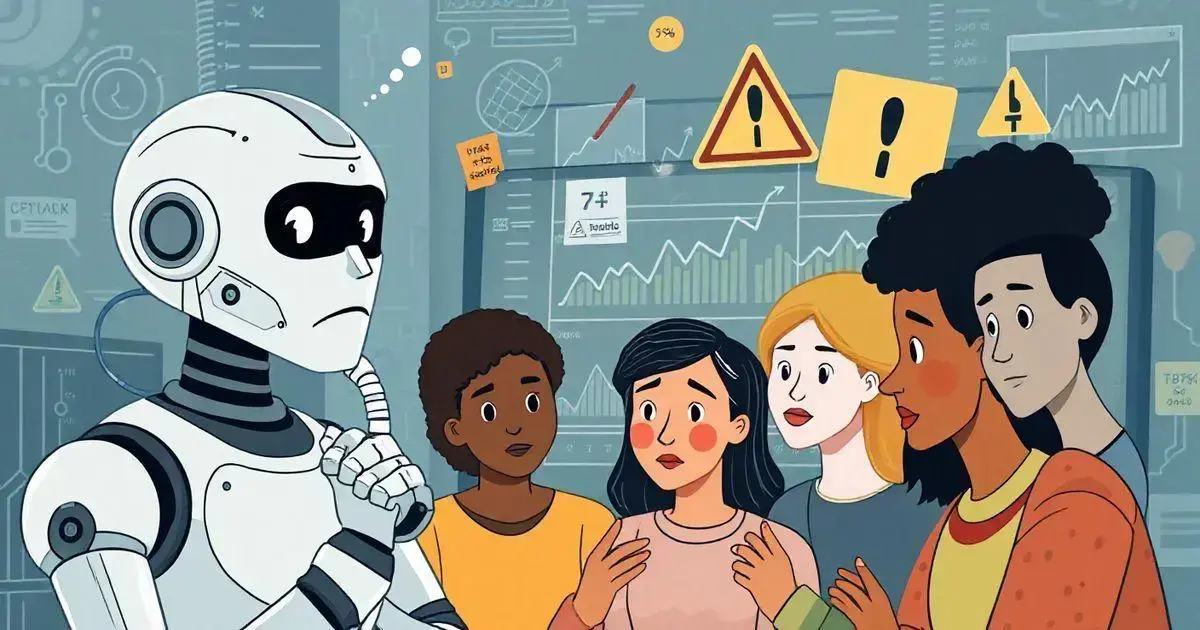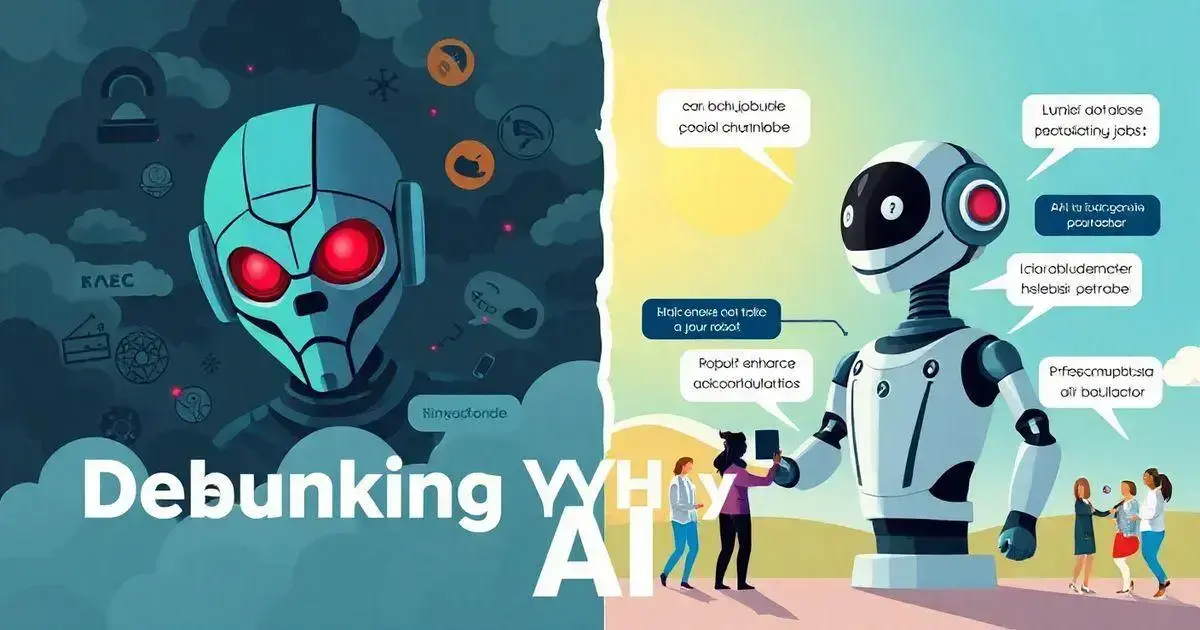What can distort our understanding of Artificial Intelligence? This is an increasingly relevant question in a world where AI is becoming a bigger part of our daily lives. Whether through news, experiences, or theories, our perception can be easily shaped by inaccurate or incomplete information.
The development of AI brings incredible advancements but also raises concerns, myths, and questions about its true capabilities and applications. From misunderstood concepts to biases in the data used to train AI, many factors contribute to a distorted view of this fascinating field.
If you’ve ever wondered how these perceptions emerge and how they shape our interaction with technology, keep reading. We’ll explore the key elements that can lead to misconceptions about AI and uncover insights to help you better understand this complex topic.
The Basics of Artificial Intelligence
What can distort our understanding of Artificial Intelligence? This question is vital as we explore how AI continues to shape various aspects of modern life.
Many factors contribute to misconceptions about its purpose, capabilities, and limitations. One key point to recognize is that AI systems are not flawless, as their outputs depend heavily on data quality and algorithm design.
When exploring AI’s potential, What can distort our understanding of Artificial Intelligence is the presence of biases within training data or misunderstandings of how AI categories, like narrow AI and general AI, function.
Narrow AI focuses on specific tasks, such as voice recognition or playing chess, while general AI aims to reason across broader topics similarly to human cognition. Both types depend on algorithms learning from experience and data to improve performance.
For industries such as healthcare, finance, and transportation, AI has already proven its potential in areas like diagnosing diseases and fraud detection. However, to make the most of its applications, it is important to confront these misconceptions and biases and build a clearer, more accurate perspective of AI’s role in our lives.
Common Misconceptions About AI

There are many misconceptions about Artificial Intelligence (AI) that can lead to misunderstandings about its capabilities and limitations.
One of the most important questions to consider is What can distort our understanding of Artificial Intelligence? Many people mistakenly believe that AI can think and feel like humans. In reality, AI operates based on algorithms and data; it does not possess emotions or consciousness.
Another common myth is that AI will inevitably replace human jobs. While AI can automate certain tasks, it also creates new job opportunities in emerging fields and can work alongside humans, enhancing productivity.
Here again, What can distort our understanding of Artificial Intelligence is the assumption that AI is always unbiased. In fact, AI systems can reflect the biases present in their training data, leading to unfair or biased outcomes, particularly in areas like hiring and law enforcement.
Understanding these misconceptions is crucial for building a clearer, more informed perspective on AI. By addressing these myths and exploring their roots, we can better leverage AI’s potential while ensuring fairness and responsibility.
The Role of Media in AI Perception
The media plays a significant role in shaping our understanding of Artificial Intelligence (AI). Through news reports, documentaries, and online articles, the portrayal of AI can greatly influence public perception. Sensationalized stories about AI leading to job losses or taking over the world can create fear and misunderstanding.
On the other hand, positive representations of AI show its potential benefits, such as improving healthcare, enhancing education, and streamlining business processes. These portrayals help the general public grasp how AI can be a helpful tool in everyday life.
It is essential to critically evaluate the information presented in the media about AI. Not all content is accurate or well-researched, which can perpetuate misconceptions and bias. When engaging with media about AI, readers should seek out credible sources and consider multiple perspectives to form a balanced view.
How Bias Affects AI Understanding

Bias is a significant issue in the field of Artificial Intelligence (AI). It occurs when AI systems reflect the social prejudices present in their training data. What can distort our understanding of Artificial Intelligence is assuming that AI operates without bias. Because AI learns from data, if that data is biased, the AI’s decisions and outputs will also be biased.
For instance, if an AI system is trained on historical hiring data that favors one demographic over another, it may inadvertently prioritize candidates from that demographic, regardless of their qualifications.
This not only perpetuates existing inequalities but also limits opportunities for underrepresented groups. This is a clear example of how What can distort our understanding of Artificial Intelligence can lead to real-world consequences.
To combat bias in AI, it is crucial to use diverse and representative datasets during training. Additionally, regular audits should be conducted on AI systems to ensure fairness and accuracy. The impact of bias on AI understanding underscores the importance of transparency and accountability in AI development.
The Impact of AI Ethics on Public Insight
AI ethics is crucial in shaping public understanding and confidence in technology. What can distort our understanding of Artificial Intelligence is overlooking the ethical implications that come with its rapid advancement. The ethical use of AI involves considering its effects on society and ensuring fair treatment of all individuals.
For instance, issues like privacy and transparency are at the forefront of AI discussions. If AI systems operate without clear guidelines, they can lead to confusion and a lack of trust among users. Furthermore, What can distort our understanding of Artificial Intelligence is the tendency to focus solely on technological benefits while ignoring the societal risks.
Additionally, AI can sometimes amplify existing biases. When companies use AI to make decisions, such as hiring or lending, it is essential that these systems are designed ethically to avoid unfair practices.
Public insight depends on knowing that AI is not just a tool but a part of a larger societal framework. Addressing these ethical concerns fosters greater trust and promotes better outcomes for all.
Debunking Myths Surrounding AI

Future Trends in AI Awareness
Ethical AI is becoming increasingly important as there is a growing focus on responsible development of AI technologies. This includes establishing guidelines for fairness and transparency.
AI Education is also on the rise, with the integration of AI topics into educational curricula to prepare future generations for a world where AI plays a significant role.
Moreover, Public Awareness Campaigns are being launched to inform the public about AI capabilities, aiming to reduce fear and increase trust in these technologies.
Lastly, Personalization is a key trend, as businesses leverage AI to tailor products and services to individual preferences, enhancing customer experience.
What Can Distort Our Understanding of Artificial Intelligence: FAQ
How can automation of tasks benefit my business?
Task automation frees your team from repetitive activities, increasing productivity and allowing them to focus on more strategic tasks.
What tools can I use for data analysis?
There are various tools available, such as Google Analytics, Tableau, and Microsoft Power BI, that help collect and interpret valuable data.
What are chatbots and how do they improve customer service?
Chatbots are virtual assistants that can answer questions and resolve issues at any time of the day, enhancing customer experience and freeing up your team.
How can I personalize the customer experience?
By analyzing data, you can better understand customer preferences and offer personalized recommendations and promotions.
What is the importance of customer feedback?
Feedback is essential to identify areas that need improvement and to adjust your service strategy, ensuring customer satisfaction.
Is artificial intelligence accessible to small businesses?
Yes, there are many accessible and scalable AI solutions that small businesses can implement to enhance efficiency and service.